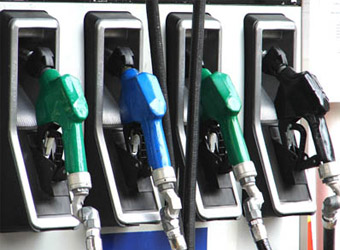Saudi Arabia, the biggest Arab economy, will probably delay plans to increase gasoline and other energy prices until later this year or early in 2018 amid an economic slowdown, to four people familiar with the matter told Bloomberg.
The government plans to raise energy prices in October at the soonest and most likely early next year, according to the people, who asked not to be identified because the information isn’t public. Energy Minister Khalid Al-Falih said in December that the next increase “will not be late in 2017.” A spokesman for the finance ministry declined to comment. Spokesmen at the economy and energy ministries were not immediately available for comment.
The government delayed the next round of price increases because it wanted to ensure that an increase won’t slow industrial activity, two of the people familiar with the matter said. The government is still assessing how much to raise prices to avoid hurting the economy, they said.
Saudi Arabia is trying to rein in spending and reduce dependence on oil after a global slump in crude prices. Energy-subsidy reform is a key part of the reform plan, along with the sale of stakes in state-owned entities, including the world’s biggest crude exporter known as Saudi Aramco. The kingdom raised fuel prices in December 2015 and announced plans for more hikes. But gross domestic product shrank by 0.5 percent in the first quarter, showing the scale of the challenges the government may face as it seeks to overhaul an economy still reliant on a struggling oil industry.
Cash payouts
Payments to low- and middle-income Saudis to help them adjust to the subsidy cuts and other austerity measures, expected to begin this month, have also not started. The benefits program, called the Citizen’s Account, will take effect before energy prices are raised, Al Watan newspaper reported on Wednesday, citing Yaser al-Zahrani, a media center official for the program. No date has been set yet, he said.
Saudi Arabia’s energy prices are still among the cheapest in the world, with 91-octane gasoline at 0.75 riyals (20 cents) per liter, up from 0.45 riyals per liter before the first subsidy cut. The government aims to link them to international prices, Al-Falih said in December.
Source: Bloomberg


